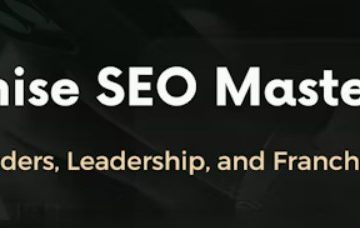Search Engine Optimization (SEO) can seem daunting for beginners, but with the right tips and tricks, you can significantly improve your website’s visibility and attract more organic traffic. This guide offers essential strategies to help you get started on your SEO journey.
1. Understand the Basics of SEO
Before diving into optimization, familiarize yourself with the key components of SEO:
-
On-Page SEO: Optimizing elements on your website, including content, titles, and meta descriptions.
-
Off-Page SEO: Building authority through backlinks and social media engagement.
-
Technical SEO: Ensuring your website is structured for search engines to crawl and index efficiently.
Effective digital marketing services starts with solid keyword research. Here’s how to do it:
-
Identify Your Audience: Understand what terms and phrases your target audience uses when searching for your products or services.
-
Use Keyword Tools: Leverage tools like Google Keyword Planner, Ubersuggest, or Ahrefs to find relevant keywords and assess their search volume and competition.
-
Focus on Long-Tail Keywords: Target specific phrases that are less competitive but can attract highly interested visitors. For example, instead of “shoes,” consider “best running shoes for women.”
3. Optimize On-Page Elements
Enhancing your on-page SEO is crucial for higher rankings:
-
Title Tags: Create compelling and keyword-rich titles for your pages, ideally under 60 characters.
-
Meta Descriptions: Write concise summaries (up to 160 characters) that encourage clicks and include relevant keywords.
-
Header Tags: Use H1 tags for main titles and H2/H3 for subheadings to improve content structure and readability.
-
Create Valuable Content: Focus on providing informative, engaging, and well-researched content that addresses user needs.
-
Use Keywords Naturally: Integrate your target keywords into the content without overstuffing. Aim for a natural flow that enhances readability.
-
Include Multimedia: Incorporate images, videos, and infographics to enrich your content and keep users engaged.
4. Improve Site Structure
A well-structured website enhances user experience and SEO:
-
Use a Clear Navigation Menu: Ensure visitors can easily find information by creating a straightforward and logical menu.
-
Internal Linking: Link to other relevant pages on your site to help search engines understand your content and keep users engaged longer.
-
Optimize URL Structure: Use short, descriptive URLs that include keywords and avoid unnecessary parameters.
5. Focus on Mobile Optimization
With an increasing number of users accessing websites via mobile devices, mobile optimization is essential:
-
Responsive Design: Ensure your website adapts to different screen sizes for a seamless user experience.
-
Fast Loading Times: Optimize images and leverage browser caching to improve page speed. Tools like Google PageSpeed Insights can help identify issues.
6. Build Quality Backlinks
Backlinks from reputable sites enhance your site’s authority:
-
Create Shareable Content: Develop high-quality content that others will want to link to, such as infographics or comprehensive guides.
-
Guest Blogging: Write articles for reputable blogs in your industry and include links back to your site.
-
Network with Influencers: Build relationships with influencers who can share your content and drive traffic.
For businesses with a physical presence, local SEO is crucial:
-
Google My Business: Claim and optimize your listing to appear in local searches and Google Maps. Ensure all information is accurate and up to date.
-
Local Keywords: Incorporate location-specific keywords in your content and meta tags.
-
Encourage Customer Reviews: Positive reviews enhance credibility and can improve local search rankings.
8. Monitor and Analyze Performance
Regularly tracking your SEO performance helps you make informed adjustments:
-
Use Google Analytics: Monitor your website traffic, user behavior, and conversion rates.
-
Track Keyword Rankings: Use tools like SEMrush or Moz to keep an eye on your keyword performance.
-
Adjust Based on Data: Analyze what’s working and what isn’t, and be prepared to adapt your strategy accordingly.
9. Stay Informed About SEO Trends
SEO is constantly evolving, and staying updated is essential:
-
Follow SEO Blogs: Subscribe to reputable sources like Search Engine Journal, Moz, and Neil Patel’s blog for the latest insights and best practices.
-
Engage in Online Communities: Participate in forums and social media groups focused on SEO to learn from others and share experiences.
Getting started with SEO doesn’t have to be overwhelming. By following these tips and tricks, you can build a strong foundation for optimizing your website and increasing its visibility in search engines. Remember, digital marketing agency is a long-term investment; consistency and continuous improvement will yield the best results over time. Start implementing these strategies today, and watch your online presence grow!





